Satoru Iwata was a great Nintendo president, but also something more important
So I’ve been having a hard time starting this article. Not just because my instincts simply refuse to deal with the news of Satoru Iwata’s death, or because both he and his Nintendo reign were far too young for this to be acceptable. All of the above taken into consideration – and believe me, they have been, a lot – the biggest reason I’ve had trouble starting this is that there’s just too much Iwata to crystalise into a single opening paragraph. I was flailing a bit. But then I found the perfect distillation, rather brilliantly, from the man himself.
"On my business card, I am a corporate president. In my mind, I am a game developer. But in my heart, I am a gamer."
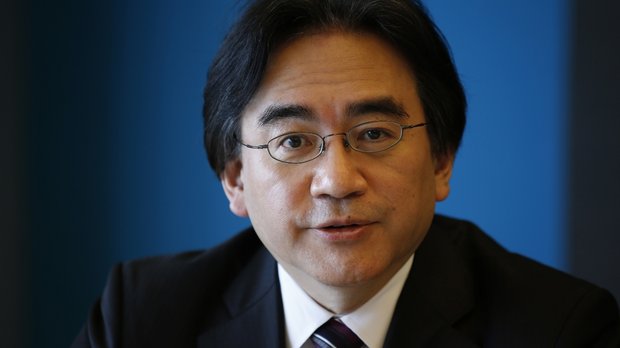
That was Iwata, right there, in his 2005 GDC keynote. It would have been easy to handwave his statement as the catch-all PR bluster of a company president pandering to all sectors of his industry. I’ve been at more than enough events where developers have pushed their supposedly fannish ‘just like you’ credentials in order to get journos and public alike onside. It’s a cheap, easy trick, and often a heap of bullshit to boot. But with Iwata, it never felt that way. Iwata was one of the good guys. He was one of us. He was a gamer, who became a game developer, who became a video game company president, and who never stopped being any of his previous iterations whenever he took the next step forward.
Iwata was the guy who got excited, years after the fact, when he discovered that his early coding methods for Balloon Flight were used to create the swimming levels of Super Mario Bros., a series he’d long lamented having had no direct input on. Iwata was the guy who, upon realising that Super Smash Bros. Melee was running behind schedule, got out of his Corporate Planning office at Nintendo, rolled up his sleeves, and spent three weeks at HAL Laboratories doing the code review and bug fixing himself, in order to get the game out on time.
He was the guy who, having worked hands-on until he was 40, carried on with semi-hobbyist tinkering in his evenings at home, because he got a kick out of showing the guys at work ‘anything cool’ he’d made when he got back in on Monday. He was the boss who – during a low ebb for the company - took a personal pay-cut rather than reduce Nintendo’s creativity and morale with lay-offs. And he was the one who launched and hosted the groundbreaking Iwata Asks series of developer discussions, arguably the most open, interesting, and downright endearing insight the public have ever had into top level game development at a major platform holder.
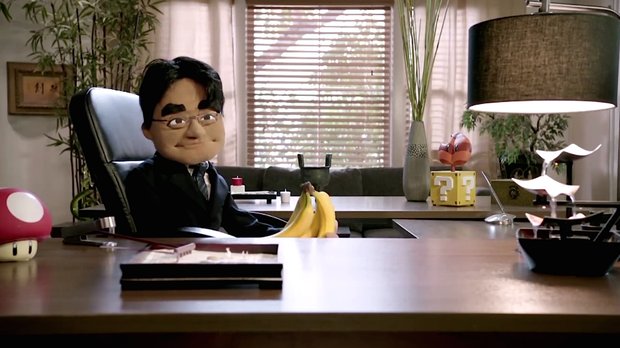
Because Iwata wasn’t like other presidents. Where other representatives for other companies are often just ‘the guy in charge right now’ - a competent suit shipped in from another corporate department to oversee and manage the gaming division and try to rally the crowd by saying the right things at E3 - Iwata was the real deal.
He was the excitable lover of games, who taught himself to make his first one on a pocket calculator, and who knew, when he saw his friends enjoying it, that "this was a source of energy and passion... I think my life course was set."
Sign up to the GamesRadar+ Newsletter
Weekly digests, tales from the communities you love, and more
Iwata never lost sight of that fun, that reward, that passion. I think that’s another part of the reason it’s tricky to write about him today. Because where other industry leaders and champions can be easily – if coldly – summed up by listing their achievements, separating Iwata the man from Nintendo the company is impossible. For his tenure, he was Nintendo, the living embodiment of the sheer creative energy and love of fun that always makes the house of Mario so different and important, however high or low its fortunes at any given time.
Where other companies chase the cool new tech trends, and think in terms of demographics, and fashionable designs, for Iwata, the industry always seemed much more simple.
"Video games are meant to be just one thing. Fun. Fun for everyone!"
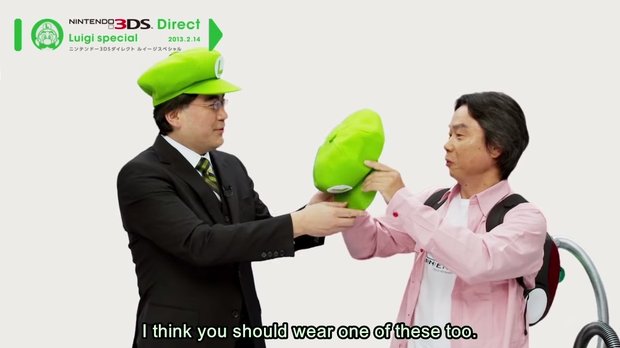
Everything else was secondary. The means, the form, the hardware, it was all just there to support that one, straightforward, profound idea. If the games weren’t delivering fun, warm, enriching experiences, then they weren’t fulfilling their purpose. And Iwata never, not for a second, let up on spreading that idea, not just with his business decisions, but with his entire persona.
When Satoru Iwata chose to strip back Nintendo’s E3 presence in favour of the online Direct video presentations, it was so that he could eschew the more general address of a press conference, and talk instead specifically to Nintendo’s hardcore fans, via a warm, friendly, curated experience designed just for them, with silliness and in-jokes aplenty. Satoru Iwata was the exec who looked naked without a big, sponge Mario hat. The one who was aware of the fanbase’s head-canon perceptions of himself, Reggie and Miyamoto, and made sure to play up to those with Matrix-style Smash Bros. fights and Robot Chicken parodies of the company’s internal workings.
He was the exec who made sure that, whatever an individual player’s tastes, hopes and preferences, whatever was on show in any given year, the Nintendo E3 Direct (alongside the many others) was a focal point around which we could all group, giddy and reconnected with what made us love games in the first place. The fun. The adventure. The creativity and the passion. All that, and banana memes too, every bit wrapped up and grounded in his wonderfully human, honest presentation quirks and that presence of sheer, unerring decency. That’s what Iwata did. He was important to Nintendo – and to gaming overall – not just because of what he did in business, but just as much because of what he brought in himself.
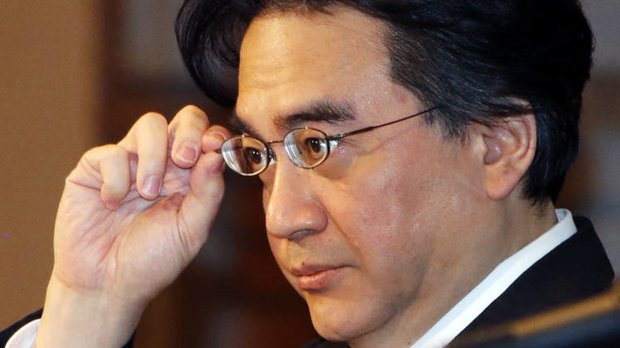
It says a lot that there’s only one video game exec represented by a full suite of custom-made animated GIFs in the GamesRadar+ team chatroom. It says even more that we’ve been quietly sneaking Iwata into our Photoshop features – Where’s Wally/Waldo-style - for the last couple of years, with a secret article tag to group them all together. We’ve often debated when/if to reveal that little pastime of ours, and today seems as good a reason as any to do so, not that I ever wanted to under these circumstances.
All of this vividly in mind, it almost feels like a footnote to mention Iwata’s tangible, concrete contributions to gaming. And there can be no greater tribute than that, when you consider that those contributions include the DS, the Wii, and very probably saving Nintendo outright via the bravery to launch both. Because it was Iwata’s dynamism, freshness, and youth that that really turned Nintendo around. After years of slow decay, fighting a console war it was increasingly out of step with, eroded by the latter era stubbornness dictated by the old guard, Iwata’s Nintendo was little short of a glorious, invigorated reboot. Not simply a company with new hardware and new games, but a company with a whole new perspective on those things, and what they could achieve, and how they could touch people, everywhere, in all kinds of unimagined ways.
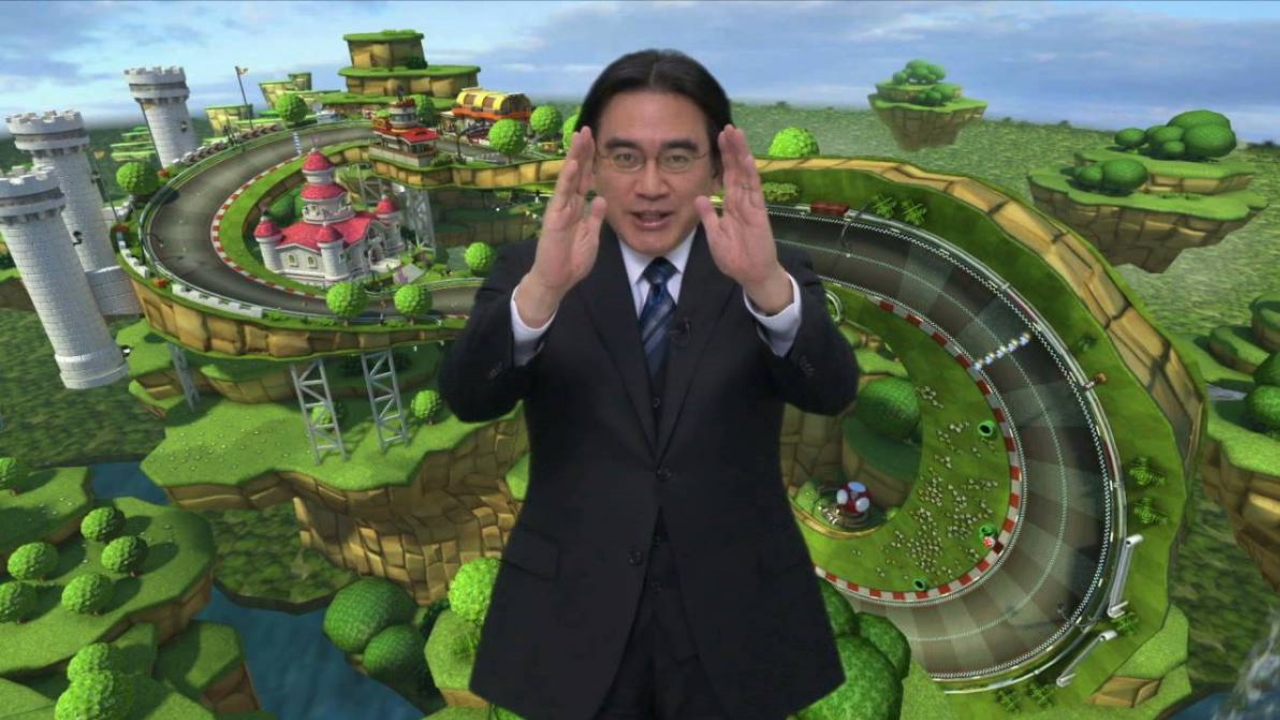
Say what you like about the Wii. Appraise Nintendo’s output during that period any way that feels right to you. But now that the dust has settled, it’s undeniable that the era did – directly and indirectly – make video games a more eclectic, more inclusive, more progressive place to play. Whether or not you personally bought into the console and its games beyond the traditional Mario, Smash, and Zelda, the fact is that, much like Iwata himself, the Wii changed gaming for the better just by being here.
So big, sponge hats off to you, Satoru Iwata. So long, and thanks for all the bananas. You are gone far too soon, but if there’s any justice in this industry, you’ll be around for a long time to come regardless.
You sir, were the absolute best.



